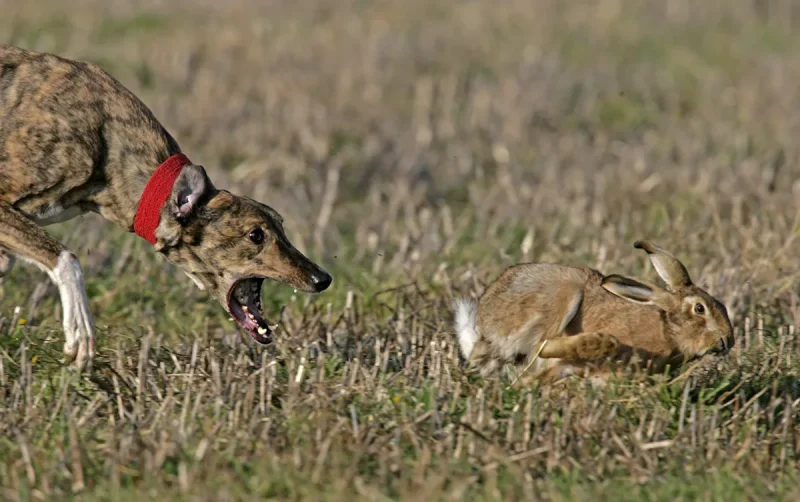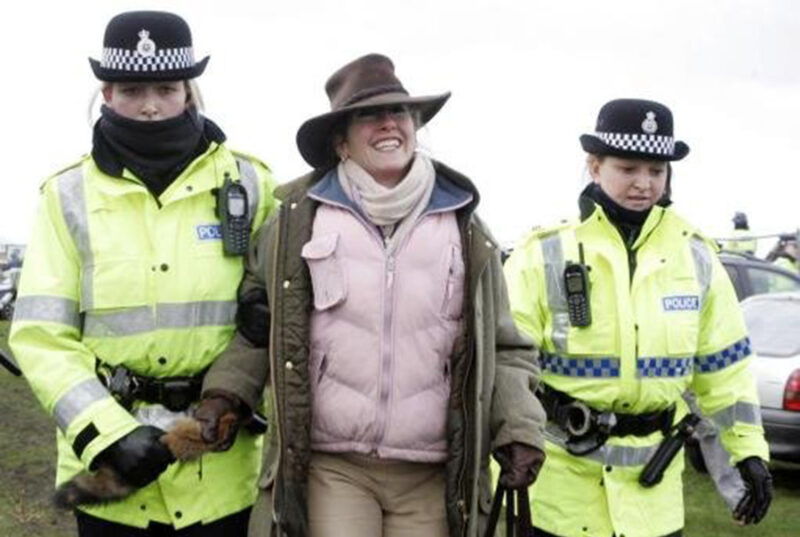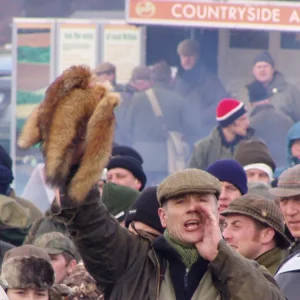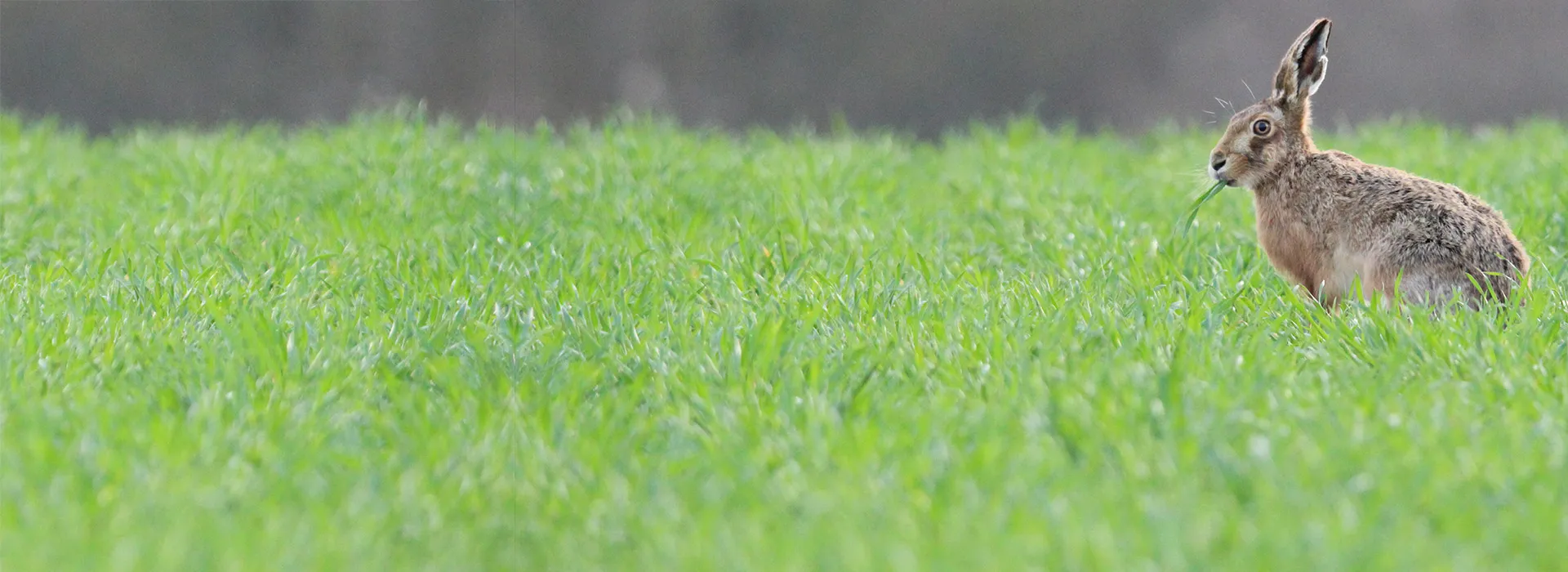The aim of hare coursing is for two dogs (usually greyhounds or lurchers) to compete against each other in a test of speed, determination and agility in pursuit of a live hare.
The two dogs are held back by a man called a ‘slipper’ who waits until the hare has approximately an 80 metres start, before releasing them. Unlike hare hunting with hounds, the dogs used in coursing are faster than the hare and soon make up the distance. The dogs are judged based on their speed, agility, and ability to follow the hare’s movements. The hare, whose natural defence mechanism is its speed, then has to rely on jinking, twisting and turning to avoid capture. The terrified hare is made to run for its life to provide ‘entertainment’.

To address animal welfare concerns, the UK government introduced the Hunting Act in 2004, which effectively banned hare coursing. The act prohibits the chasing and killing of wild mammals, including hares, with dogs in England and Wales.
Waterloo Cup
The Waterloo Cup held on the Altcar Estate, located near Liverpool in Lancashire, was one of the most prestigious and controversial hare coursing events in the United Kingdom. Spanning vast open fields, the estate provided the perfect setting for the hare coursing competitions and the three day event attracted thousands of people. In 2005, following the implementation of the Hunting Act, the Waterloo Cup finally came to an end.

Poaching
Prior to the Hunting Act 2004 illegal coursing (coursing hares without the landowner’s permission i.e. poaching) had increased so dramatically that it has caused great concern to farming authorities and the police.
Illegal coursing, which involves unregulated and unsanctioned events, leads to trespassing, damage to farmlands, and can disrupt local ecosystems. Additionally, these events are often associated with criminal activities, such as gambling and violence.
Farmers are known to shoot hares in an effort to prevent their land attracting poachers who on many occasions have threatened protesting farmers with violence.



